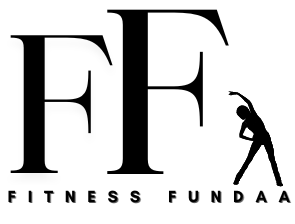Leading on a 30-day fitness challenge is like stepping into a transformative journey, a commitment that resonates with the rhythm of positive change in both physical health and overall well-being. This month-long endeavour is a deliberate dance with habit formation, extending beyond the magic 21-day mark to ensure that exercise becomes a seamless part of daily life. The 30-day timeframe acts as a friendly guide, lessening the weight of the commitment and inviting individuals to overcome inertia, setting the stage for a profound journey of positive metamorphosis.
Over the course of these thirty days, participants become storytellers of their physical evolution, witnessing chapters of tangible and visible results unfolding before their eyes. The scale might reveal weight loss, the mirror might reflect improved muscle tone, and the body might echo newfound endurance. These are not just outcomes; they are the plot twists that keep the narrative engaging and fuel the motivation to turn the pages each day.
Yet, this challenge is not just a physical endeavour; it’s a narrative of mental resilience and discipline. Each day becomes a plot twist, an opportunity to overcome obstacles, stick to a script of consistent workouts, and resist the allure of skipping sessions. In this narrative, participants don’t just exercise; they become the heroes of their own stories, developing a robust mindset that extends beyond the realm of fitness, positively influencing the character they are becoming.
In essence, the 30-day fitness challenge is a narrative of enduring behavioural change, an epic that fosters mental resilience, and an invitation to embark on a transformative journey toward improved health and well-being. It’s not just a challenge; it’s a story waiting to be written, a canvas on which individuals paint their aspirations, and a journey that reshapes not just bodies. Let’s learn some key points which will helps us to triumph over this challenge.
The Power of a 30-Day Challenge:
There is a concept that habits can be established in around 21 days is rooted in psychological research and behavioural science. However, the specific timeframe may vary among individuals, the idea is that consistent repetition of an activity over a certain period can lead to the establishment of a habit. This duration is often considered a critical phase during which behavioral patterns become more ingrained and automatic. In the context of a 30-day fitness challenge, this scientific insight underscores the importance of the month-long commitment. It provides participants with a sufficiently extended period to transform exercise from a conscious effort into an integral part of their routine, setting the stage for long-term adherence to a healthier lifestyle.
Visible results play a crucial role in motivating individuals during a fitness challenge. As participants engage in regular exercise over the 30-day period, they often witness tangible changes in their bodies. These changes could include weight loss, improved muscle definition, increased stamina, or enhanced flexibility. Daily commitment to a 30-day fitness challenge fosters the development of mental toughness. Engaging in regular exercise requires discipline, focus, and the ability to overcome obstacles.
Crafting Your 30-Day Fitness Challenge:
If one individual sets specific and clear goals, it helps one to work and plan accordingly to achieve their desired goals. Also the importance of setting clear and specific fitness goals. Injecting variety into your workout routines is akin to infusing vibrancy into a daily routine that could otherwise become mundane. By diversifying exercises, you introduce a dynamic element that keeps both body and mind engaged.
It’s like turning your fitness journey into a versatile playlist, each exercise representing a distinct note in the melody of your routine. This diversity not only staves off monotony but also ensures that each session feels fresh and intriguing. Instead of the predictability of a single routine, you’re met with a sense of anticipation, fostering sustained engagement throughout the 30-day challenge.
Strength Training for Muscle Toning, Metabolism Enhancement, and Body Sculpting:
The benefits of strength training are beyond muscle building as it sculpts and defines your physique and also tones muscles , leads to improvisation in endurance and metabolism. Just like an artist moulds its clay, strength also allows and helps your shape specific muscle groups which further contributes to a balanced and aesthetically pleasing body formation. Including these benefits, there is also a boost in metabolism, aiding in weight management and overall health.
Nourishing Your Mind:
Incorporating mindful practices such as meditation and deep breathing exercises. Keeping a daily fitness journal is a game-changer. It’s your personal tracker for progress, highlighting improvements in workouts and helping fine-tune your routine. Beyond the physical, it’s a mirror for self-reflection, providing insights into how your body responds to different exercises.
The journal creates accountability, turning your goals into commitments. Celebrating victories, big or small, fosters positivity and motivation. In essence, it’s a powerful tool for tracking progress, enhancing self-awareness, staying accountable, and maintaining a positive mindset on your wellness journey.
In conclusion, the 30-day fitness challenge is a transformative journey that extends beyond physical health to encompass mental resilience and discipline. It serves as a narrative of enduring behavioral change, with each day presenting an opportunity for personal growth. The commitment of 30 days provides a structured timeframe for habit formation, ensuring that exercise becomes an integral part of daily life.
Visible results, mental toughness, and the power of setting clear goals contribute to the narrative, turning participants into the heroes of their own stories. Crafting a diverse and engaging fitness routine, incorporating strength training, and nourishing the mind through mindful practices are integral aspects of this holistic journey. Ultimately, the 30-day fitness challenge is not just a challenge; it’s a canvas on which individuals paint their aspirations, a story waiting to be written, and a journey that reshapes not just bodies but entire lifestyles.
FAQs for the 30-Day Fitness Challenge Article:
Why is a 30-day timeframe emphasized for fitness challenges?
The 30-day timeframe serves as a guide for habit formation, allowing exercise to become seamlessly integrated into daily life. It goes beyond the traditional 21-day notion, providing a structured period for sustainable behavioral change.
What are the visible results participants might expect during a 30-day fitness challenge?
Participants often witness tangible changes such as weight loss, improved muscle tone, increased stamina, and enhanced flexibility. These outcomes serve as motivators and plot twists in their fitness journey.
How does the 30-day challenge contribute to mental resilience and discipline?
Each day of the challenge becomes a plot twist, an opportunity to overcome obstacles, stick to consistent workouts, and resist the allure of skipping sessions. Participants develop a robust mindset that positively influences their overall character.
What is the significance of setting clear and specific fitness goals during the challenge?
Setting clear and specific goals helps individuals work and plan accordingly, contributing to a more focused and effective fitness journey.
How does diversifying workout routines contribute to sustained engagement in a 30-day challenge?
Diversifying exercises introduces a dynamic element, preventing monotony, and ensuring each session feels fresh and intriguing. This variety fosters sustained engagement throughout the entire challenge.
What are the benefits of strength training in a 30-day fitness challenge?
Strength training goes beyond muscle building; it sculpts and defines the physique, tones muscles, enhances endurance, and boosts metabolism, aiding in weight management and overall health.
Why is nourishing the mind, including mindfulness practices and keeping a journal, highlighted in the article?
Incorporating mindfulness practices and maintaining a fitness journal enhances self-awareness, accountability, and positivity. It serves as a powerful tool for tracking progress and maintaining a positive mindset on the wellness journey.

